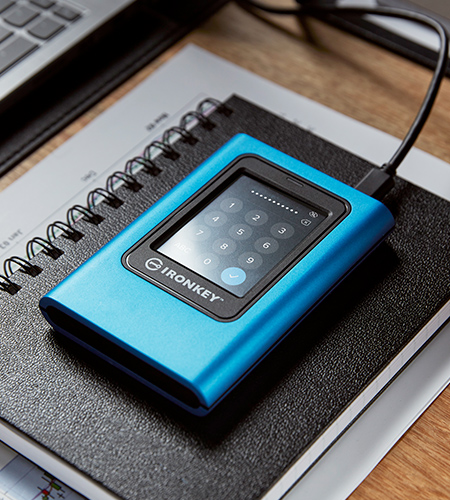Today, in most industries, remote workforces have become the norm. Employees can connect to company devices from home, the local coffee shop, or while traveling through airports and hotels.
While remote working has many benefits, it also has an obvious cybersecurity downside: sensitive company files are at risk when employees are on the move.
Risks of public Wi-Fi
It’s no surprise that in 2021, one of the FBI’s top five security tips was to be vigilant when connecting to public Wi-Fi.
Unsecured Internet access leaves sensitive data vulnerable because hackers can monitor the data sent and received by your computer.
Whenever you connect to a public Wi-Fi network, you expose yourself to hackers and vulnerabilities in your system.
You may be wondering what about the cloud? When a company mandates cloud storage, they don’t necessarily control where you access it from.
Your desktop or laptop computer then becomes an easy target for hackers. Cloud security depends entirely on the hosting provider’s technology, which must be kept up to date and adequately protected.
You therefore trust it blindly to ensure the security of your sensitive files. When there are no limits on password access attempts, or when a password is stolen, guessed, or obtained through phishing emails, hackers can get unlimited access to files present in the cloud.
In fact, violations of this type have become so common that they no longer surprise anyone.
Use the Internet in countries with monitored networks

When traveling to other countries, you may need to access the cloud to retrieve or download confidential or proprietary data.
But the unique security policies and mandatory security restrictions of countries your employees visit can put you and your business at risk.
Submitting your data to surveillance by networks outside the company is particularly risky, as foreign adversaries could use this data against companies.
With multinationals operating globally, allowing foreign governments free access to sensitive data can put unprotected companies at a competitive disadvantage, increasing the risk of industrial espionage and potentially threatening security. national.
The solution with Kingston IronKey

So what can business employees do when they have to travel and/or work from home? Kingston IronKey USB and SSD drives are the best solution for employees who need access to sensitive company data while traveling or working remotely.
Information stored on an encrypted USB drive gives travelers immediate access to their critical files while away from home or office.
This means they don’t run the risk of using the Wi-Fi of the local coffee shop, bistro or airport, or any other unknown Wi-Fi that poses security risks, to connect to their company’s cloud.
Because the encrypted USB stick contains your files, it’s like having the cloud always at your disposal, while being invulnerable to prying eyes and potential hackers.
If a hardware-encrypted USB drive is lost or stolen, it permanently erases its contents after a predefined number of unsuccessful password entry attempts.
The Kingston IronKey DataTraveler Vault Privacy 50 or 50C USB key is like an isolated cloud (“air gap”) that you can access when needed, thus limiting the exposure of your data to the Internet.
If you need larger capacities, the IronKey Vault Privacy 80 external SSD offers up to 2TB of storage space to give employees a secure personal cloud that’s always under their control.
Overall, hardware-encrypted USB drives with brute force attack protection outperform any cloud in protection, and you can access them locally without using the Internet.
Business travel carries risks, especially for sensitive data held by your employees. By using Kingston IronKey products,
you can rest assured that even if your drives fall into the wrong hands, your data has multiple layers of protection and security measures that keep it safe.
IronKey USB and SSD drives offer enterprise-grade and military-grade security options to ensure the level of protection you desire.


